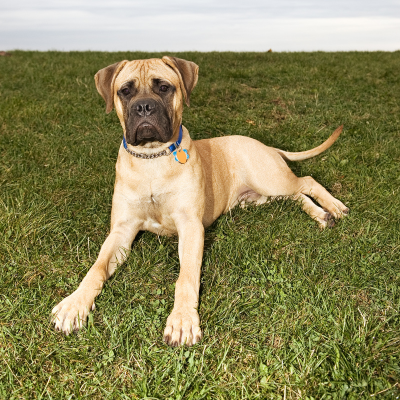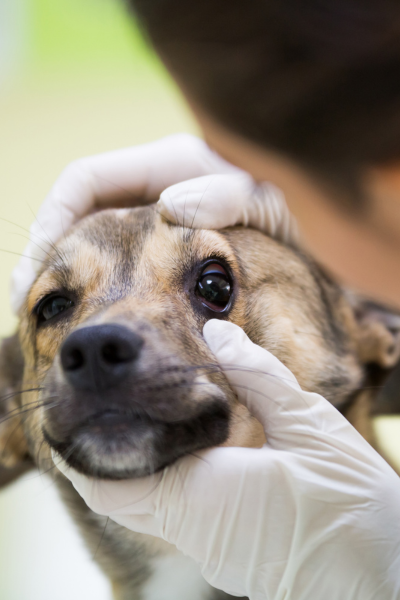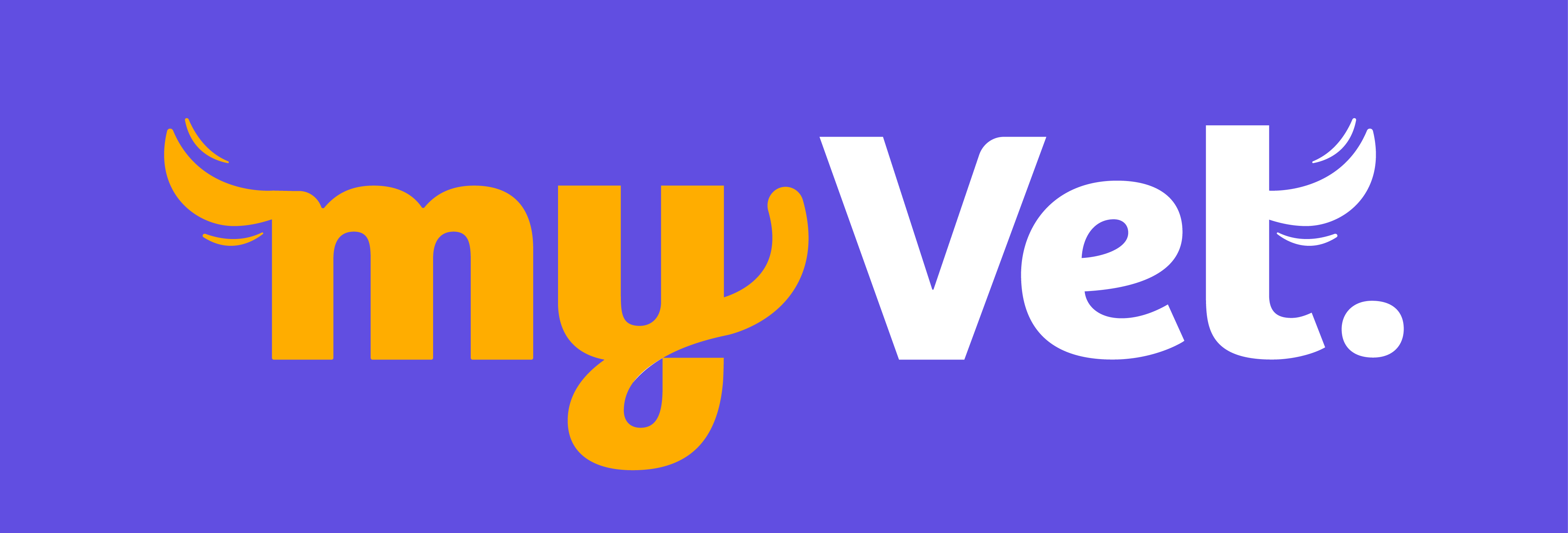Entropion in Pets
Entropion is a painful and uncomfortable disorder in which the eyelid curls inward. This irritates the cornea when the eyelash or other hair rubs against it, which can lead to the formation of eye ulcers, perforation, or pigment on the cornea. This condition can affect one or both eyes and both the upper and lower eyelids can be involved.
Entropion is usually a hereditary or genetic condition. Some predisposed breeds include the Chinese Shar Pei, Pug, Bull Mastiff, Boxer, Spaniels, Chow Chow, Retrievers, Great Dane, Irish Setter, Poodle, Saint Bernards and Hounds. Selective breeding for skin folds on the face and prominent eyes can exacerbate the risk of developing entropion in these already at risk breeds.
Entropion in cats is generally rare but is more common in flat-faced breeds with more skin folds such as Persians or Himalayan cats.
Occasionally, entropion can occur secondary to trauma, loss of neurological function in the eyelids, infection, spasms or degeneration of fat pad behind the eye.


- Excessive or abnormal tearing or blinking
- Sensitivity to light
- Red, swollen eyes
- Recurring eye infection
- Nasal discharge
How is entropion diagnosed?
- An ocular exam is generally needed to diagnose entropion. A local anaesthetic is usually required for a proper examination of the eye.
- Fluorescein dye. Your veterinarian will use this dye to evaluate the cornea for any ulcers in a dark room. The defect or lesion on the cornea will uptake the green dye and show up as a bright green area.
- Schirmer tear test. This test may also be used to rule out the presence of low tear production as a cause for the eye irritation and inflammation, which may lead to entropion.
- Intraocular pressure test. Your veterinarian may recommend testing for the pressure of your furbaby’s eye to determine if glaucoma or inflammation is present. Glaucoma and inflammation can be the cause of the entropion or a result of entropion.
Entropion can be a result of some eye conditions. In these cases, treating the secondary eye condition may alleviate the symptoms of entropion. Some milder cases may only require daily eye lubrication to alleviate the signs.
More severe cases of primary entropion, antibiotic ointment or lubrication are not effective and these cases will typically require surgical treatment. The surgical treatment of entropion is called blepharoplasty, which is essentially a cosmetic surgery. Blepharoplasty involves the removal of the excess skin and tightening of the eyelid. In most cases, once off surgical treatment is curative, however, recurrence can happen in severe cases where the animal has an excessive amount of skin folds. After the procedure, your furbaby will have to keep an E-collar on for about 10 to 14 days before the sutures are removed (if needed).
If your furbaby has developed eye ulcers as a result of entropion, these will generally be treated with an antibiotic eye ointment. If left untreated, corneal ulcers may scar excessively to the point where it will impair their vision. If an indolent ulcer should develop, your furbaby may develop a melting ulcer, where their entire eyeball could essentially melt away. These cases will often require an enucleation.
In puppies or kittens under 6 months with severe entropion, surgery is not typically done until they have reached adulthood. A lid tacking procedure will usually be done instead. This involves using temporary sutures to keep the eyelids from rolling inwards until they have developed their mature facial features.
Prognosis for entropian?
The prognosis of entropion is usually excellent especially if the surgery is performed before any corneal damage. However, the prognosis may be guarded if the cornea has been severely damaged. Therefore, it is always advisable to bring your furbaby to see a vet if you notice any issue or discomfort with your furbaby’s eye(s).
Please contact your veterinarian if you notice any of the eye issues or clinical signs listed above with your furbaby. If left untreated, entropion may lead to extreme pain and discomfort.


